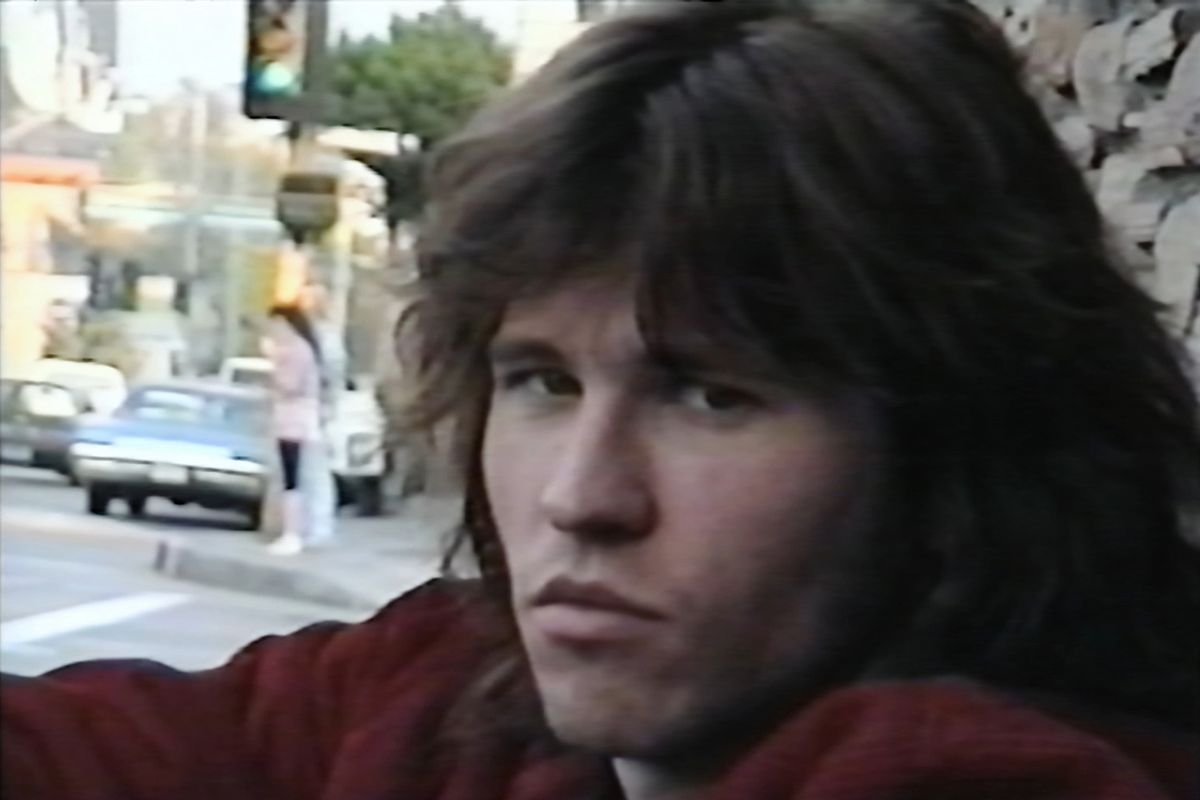‘Val’ is a heartwarming must-see documentary about longtime actor Kilmer

Val Kilmer, a poster boy of blockbuster-crazed ’80s and ’90s Hollywood, exists in the duality of being both a household name and a faded entry of America’s pop culture memory.
His story is unfortunately not unique to Hollywood – an actor who was catapulted into the spotlight before he had time to process what was happening to him and his aspirations, only to be cast out from the system just as quickly as a bygone hotshot.
The beauty of “Val,” the new documentary about his life compiled from decades’ worth of home movies, is that it reminds viewers, perhaps teaches viewers, that although what Hollywood did to Kilmer is not unique, he as a human being is.
In the mind of the ever-nostalgic public, Kilmer is preserved as the strapping, bleach-tipped Iceman eternally repeating that famous “Top Gun” line, “You can be my wingman any time.”
In reality, he is an artist who has dedicated his life to studying people, a cancer survivor recovering from treatment, a father who fawns over his children, a man of faith keeping hope alive and a celebrity trying to reckon with his past and public image.
With thousands of hours of Kilmer’s home video footage at their fingertips, directors Ting Poo and Leo Scott bring Kilmer’s reflections to life on screen. The audience gets an inside look at Kilmer’s home life, growing up in Los Angeles with Roy Rogers’s ranch right next door, which was later purchased by his real estate developer father, Eugene. We get to watch pieces of the Westerns he and his brothers created with the San Fernando Valley as their playground.
Kilmer specifically reflects on the genius of his youngest brother Wesley, who was dedicated to the arts from a young age and usually took the role of director in their productions. Wesley died at 15 after an epileptic seizure caused him to drown in the family hot tub. This event marked the end of Kilmer’s charmed family life, but as “Val” shows us, Wesley’s spirit and passion has stayed with Kilmer throughout his life as a source of creative and personal inspiration.
The documentary is a refreshing departure from the standard talking head interviews, instead intercutting excerpts from Kilmer’s home videos and recent footage of visits to Comic-Con, an outdoor screening of the 1993 “Tombstone,” and behind-the-scenes of Kilmer’s son, Jack, as he narrates the documentary.
It is playfully broken into chapters with overhead shots of Kilmer’s scrapbooks and collages, supplemented with handwritten title cards to mark the years and point out details in the footage. “Val” undoubtedly comes from Kilmer’s perspective, but it offers surprisingly vulnerable transparency. It glances over the media mania of the ‘90s that labeled Kilmer as hard to work with, but in the narration Kilmer humbly admits to having acted poorly in his past.
This documentary is not focused on gossip but on a person’s ability to accept their circumstances and grow from them. Serving as a backdrop to this story are observations of the state of Hollywood from the late ‘80s onward and its longtime legacy for chewing up and spitting out young, hopeful actors.
Whether you were a child who watched Kilmer play Batman from their living room VHS player or a theatergoer at the time “Top Gun” swept the nation, “Val” is a heartwarming must-see. It’s personal without indulging in scandal, inspiring without any pretention and overall a celebration of honesty, love and healing. Prior to its release on Amazon Prime Video, you can catch the documentary at the Magic Lantern, opening Friday.